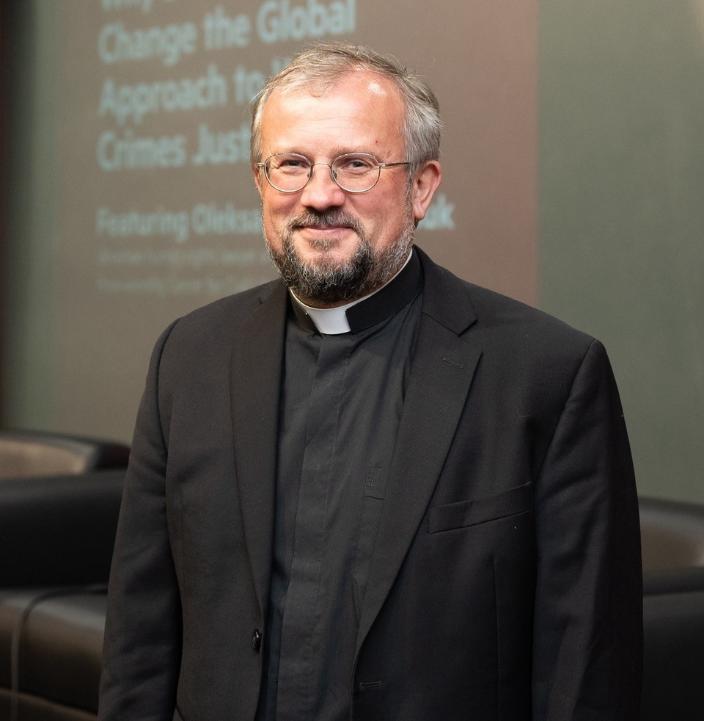
Fr. Cyril Hovorun's ecumenical commitments included representing the Russian Orthodox Church to:
- Orthodox-Lutheran dialogue
- Orthodox-Anglican dialogue
- Orthodox-Roman Catholic dialogue
- Orthodox-Oriental dialogue
- Orthodox-Jewish dialogue
- Dialogue of the Orthodox Churches and the United Bible Societies.
He participates in Saint Irenaeus Joint Orthodox-Catholic Working Group. In the past, he was a member of the Accompaniment group for the Ecumenical Institute at the Château de Bossey, which is a part of the World Council of Churches and attached to the University of Geneva; a member of the All-Ukrainian Council of Churches and Religious Organizations; a member of the Steering committee for the Orthodox-Eastern Catholic dialogue; a member of the Faith and Order Commission of the World Council of Churches; and a member of the Drafting group for the Unity Statement of the General Assembly of WCC in Busan.
More than 500 pieces of his research and journalism have been published in 30 languages. His books include Eastern Christianity in Its Texts (London: T&T Clark, 2022); La riconciliazione delle memorie: Ricordare le separazioni tra le Chiese e la ricerca dell’unità (Roma: San Paolo, 2021, in co-authorship with Lothar Vogel and Stefano Cavallotto); Political Orthodoxies: The Unorthodoxies of the Church Coerced (Minneapolis: Fortress, 2018; Ukrainian translation published in 2018); Ukrainian Public Theology (Kyiv: Dukh і Litera, 2017, in Ukrainian), Scaffolds of the Church: Towards Poststructural Ecclesiology (Eugene, OR: Cascade, 2017; Ukrainian translation published in 2018; Russian translation published in 2024); Meta-Ecclesiology, Chronicles on Church Awareness, (New York: Palgrave Macmillan, 2015; Ukrainian translation published in 2017); From Antioch to Xi’an: an Evolution of ‘Nestorianism’ (Hong Kong: Chinese Orthodox Press, 2014, in Chinese and English); Will, Action and Freedom. Christological Controversies in the Seventh Century (Leiden - Boston: Brill, 2008).